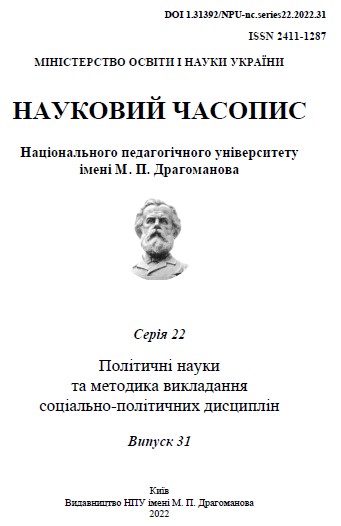Hybrid War as an Innovative Concept of Modern Geopolitics
DOI:
https://doi.org/10.31392/NPU-nc.series22.2022.31.07Keywords:
hybrid war, war, aggression, military conflict, hybrid threat, hybrid war strategyAbstract
The term "hybrid war" has been the subject of extensive analysis by a wide range of theorists, officials, political scientists, and social philosophers since the Russian Federation annexed Crimea in March 2014. This topic ceased to be the subject of study only by military strategists and became the subject of broad social discourse. It is emphasized that the scale and devastating nature of hybrid warfare can significantly change the political map of the world. The question of the political essence of this war remains insufficiently defined, which actualizes its study by political science. An analysis of the existing scientific literature on the problems of hybrid warfare is carried out.
Different approaches to its understanding are revealed. It is shown that for all the frequency of use of the concept of "hybrid war," there is no common interpretation of its meaning. An attempt has been made to transfer the discussion on hybrid warfare to a broader analytical and historical context, to generalize its concepts and related strategic priorities. A specific focus of the discussion is the modern approach to hybrid warfare in the context of the Russian Federation's military aggression against Ukraine. Historical examples of hybrid warfare are given.
The peculiarities of hybrid warfare, and its difference from other conflicts, which in general leads to a change in the concept of "paradigm of war" are identified. It is proved that the concept of hybrid wars provides for a flexible combination and implementation of a set of influences of different types: diplomatic, economic, information, military, etc. Possible directions of further research on the phenomenon of hybrid war by political science are outlined. It is noted that in political science it is worth further analysis of the study of mechanisms to neutralize the negative impact of external interventions by strengthening civil society, and protection of national values and interests as factors of internal mobilization to combat hybrid wars.

